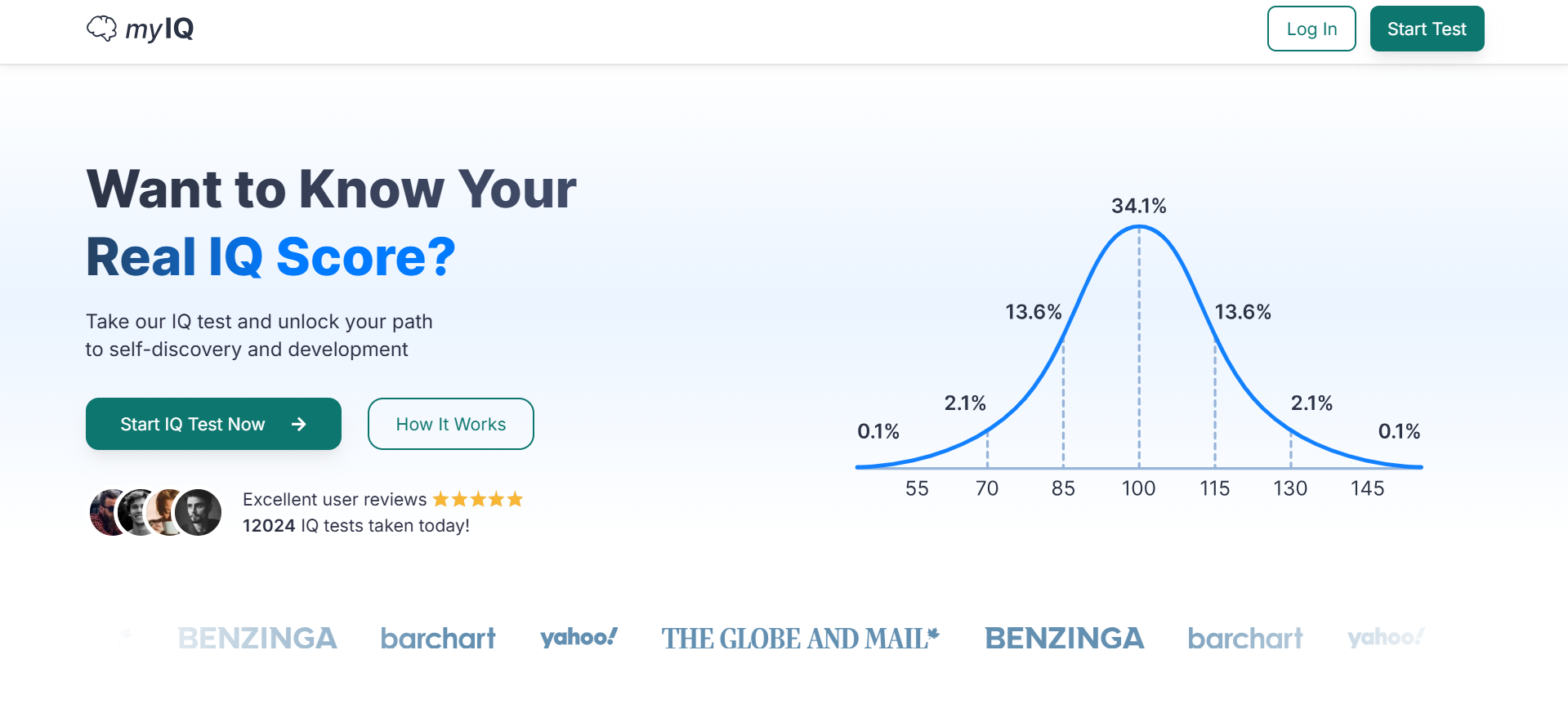
In a growing market of online cognitive assessments, MyIQ has emerged as a platform that blends rigorous testing methodology with modern, user-focused design — reshaping what people expect from an IQ test.
For more than a century, IQ tests have been a fixture in education, employment, and research, designed to measure problem-solving, reasoning, and memory. Traditionally, these tests were conducted in controlled, in-person settings with rigid formats.
MyIQ represents a shift toward an accessible, data-rich, and engaging model that reflects how people now approach self-assessment.
The platform’s emphasis on accuracy, personalization, and learning integration has made it a notable presence in the cognitive testing space — and MyIQ reviews increasingly point to its role in broadening both the audience and the applications for IQ measurement.
A platform designed for more than a score
While conventional IQ testing often ends with a single number, MyIQ expands the experience into a structured journey of self-discovery.
The core IQ assessment is built on established psychometric principles, but its delivery is tailored for online engagement. Users move through adaptive questions that adjust in difficulty, ensuring a more precise result for a broader range of ability levels.
Beyond the score, MyIQ incorporates personality profiling, love style analysis, and career insight tools — creating a multidimensional profile. This integration reflects a shift in the self-assessment industry toward platforms that capture multiple aspects of cognitive and emotional patterns.
MyIQ reviews frequently highlight this breadth as a differentiator, noting how the platform links results to practical advice and personal development resources.
From test to training — closing the feedback loop
One of myiq.com’s distinctive features is its commitment to what happens after the test. Rather than providing a static report, the platform offers interactive brain training games, over 150 intelligence-boosting puzzles, and structured exercises designed to strengthen identified cognitive skills.
This bridges the traditional gap between assessment and improvement — a gap that has often left test-takers wondering how to act on their results.
The training modules are gamified in a subtle, purposeful way. They are designed to sustain engagement without undermining the scientific integrity of the exercises.
According to user feedback, this balance makes continued use more appealing, leading to measurable progress over time. The approach reflects a broader trend in digital learning: combining analytics and interactivity to drive ongoing engagement.
How MyIQ personalizes self-assessment?
A defining element of myiq.com is its emphasis on turning raw scores into actionable insights. Each MyIQ review points to the depth of the final report: clear breakdowns of cognitive strengths, areas for development, and suggested training paths.
For personality and relationship-oriented tests, the platform offers compatibility mapping and communication tips, helping users translate abstract self-knowledge into concrete action.
The personalization extends into follow-up content. Subscribers receive curated training recommendations and insights aligned with their results, ensuring that the platform remains relevant long after the initial test is complete.
This data-driven continuity mirrors how leading digital fitness or language-learning apps retain user engagement — by continually adapting to individual progress and goals.
Accessibility without compromise
In-person IQ testing has long been criticized for its logistical and financial barriers. Sessions can require travel, scheduling weeks in advance, and significant cost.
MyIQ addresses these constraints by making professional-grade assessments available online for a fraction of the price. The platform’s streamlined interface is optimized for desktop and mobile, ensuring that the testing experience is consistent across devices.
Importantly, this accessibility does not come at the expense of reliability. The adaptive algorithm that powers the IQ test draws on large-scale data modeling to refine accuracy.
By collecting response times, error patterns, and answer sequences, MyIQ can generate a nuanced profile that aligns with traditional psychometric standards — a point frequently emphasized in independent MyIQ reviews.
Cultural relevance and the rise of self-assessment platforms
The growth of platforms like MyIQ reflects a cultural shift in how people think about intelligence and personal growth.
The democratization of testing — moving from institutional settings into everyday digital environments — has expanded both awareness and participation. Online cognitive tools are increasingly seen not just as evaluators but as catalysts for development.
In this landscape, myiq.com’s positioning is notable. It combines the credibility of traditional assessment methods with the flexibility and user experience design of modern consumer tech.
The integration of cognitive, personality, and relational dimensions speaks to a market that values holistic self-understanding. MyIQ reviews often reference the sense of agency the platform provides: users can test, learn, and train without needing to navigate fragmented services.
Looking ahead — the evolving role of MyIQ in cognitive testing
As AI, adaptive testing, and behavioral analytics continue to evolve, platforms like MyIQ are well-placed to redefine the boundaries of personal assessment. The platform’s layered model — assessment, interpretation, and improvement — anticipates a future where self-evaluation is both precise and dynamic.
In an era where individuals seek not just to measure intelligence but to actively cultivate it, MyIQ offers a blueprint for the next generation of testing tools. The combination of rigorous psychometrics, accessible design, and sustained engagement has already set it apart from traditional formats.
For those exploring ways to understand and develop their cognitive abilities, myiq.com stands out in both capability and vision — a fact reflected consistently across MyIQ reviews and user experiences.

